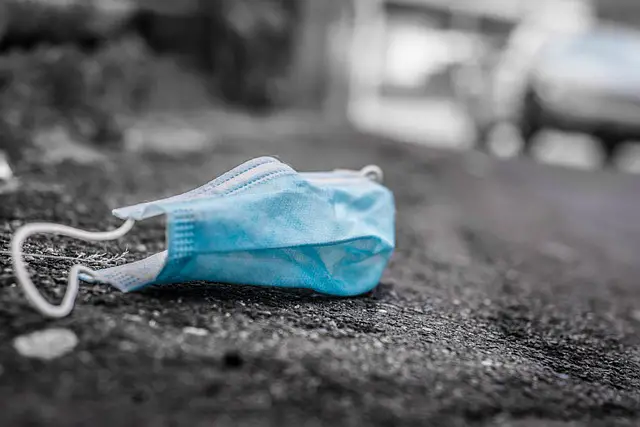Theme:
- Covid pandemic increased biomedical waste generation to a large extent.
The present situation:
- At present, there is poor segregation of biomedical waste and other general solid waste. As a result, biomedical waste such as masks, gloves, PPE kits etc. is being mixed into normal waste and is ending up in landfills and open dump yards. This is affecting the health of garbage handling workers and also affecting the environment. At present, there are approximately 40 lakh garbage pickers in India. Due to the increasing biomedical waste in the time of the covid pandemic, almost all are susceptible to health risks. As per World Health Organisation (WHO), dumping biomedical waste in open dump yards can release drug-resistant microorganisms.
- As per the Central pollution control board (CPCB), 616 tons of biomedical waste was being generated per day in 2019. Now, as of 2021, it is estimated that 146 tons of additional biomedical waste due to covid diagnosis testing, treatment etc. is being added every day.
How to deal with biomedical waste:
- Rules on the segregation of biomedical waste from normal solid waste should be implemented strictly with hefty fines.
- Widespread awareness programs should be conducted for common people on disposing of biomedical waste such as gloves, masks etc. As per the CPCB, masks and gloves should be cut into pieces to prevent misuse, and then the waste should be kept separately for 72 hours before giving it to municipal workers in a separate bag.
- At present, biomedical waste treatment facilities in India can handle 840 tons of medical waste daily. This capacity should be increased and also they should be monitored well.
- More investment and human resources should be brought into handling biomedical waste.
- Greener options such as bio-methanisation (converting biomedical waste into electricity) to destruct biomedical waste should be explored and implemented at a large scale. At present, most of the biomedical waste is being incinerated (destruction by burning).
- Sanitation workers should be provided with protective equipment.
- Regular checks at diagnostic centres and hospitals on disposing of biomedical waste can help in the effective implementation of rules.
- Reducing the biomedical waste generation as much as possible by effective practices such as using cloth masks, reusable gloves etc. can help in reducing the burden of the destruction of the biomedical waste.
Conclusion:
More investment and human resources are needed to handle the increasing biomedical waste. Effective management of biomedical waste is very essential to ensure a cleaner environment and healthy humans.
Your turn…
What’s your take on this topic? Express your thoughts through the comment section below. And subscribe to our blog to read answers to the trending GD topics.
References:
- ‘Jeeva vyarthalatho anardham’ article in the Eenadu newspaper.
-
India faces growing biomedical waste crisis as coronavirus cases soar
Image by Roksana Helscher from Pixabay
Copyright @ Group Discussion Ideas.

